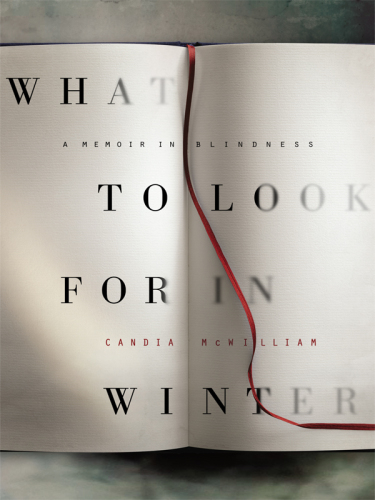
What to Look for in Winter
کتاب های مرتبط
- اطلاعات
- نقد و بررسی
- دیدگاه کاربران
نقد و بررسی

Starred review from April 23, 2012
Imagine your world abruptly shrouded in darkness, not because there's something wrong with your vision, but because your eyelids cannot stay open. This is what happened to Scottish writer McWilliam (A Case of Knives) at the age of 50. The condition is called blepharospasm and it's devastating, especially to McWilliam, a life-long reader, who still buys books "to have them handy by me, to have their breath in my air," though she can no longer read them. McWilliam believes that "by writing about my blindness and the life thatâ¦has brought it, I might lift it from my eyes." The resulting memoir sparkles with vivid descriptions, of her native Scotland and the idyllic island of Colonsay, of the many people in her life, and of the tragedies that punctuate itâa mother who committed suicide at the age of 36, two failed marriages, a long bout of alcoholism, crippling self-doubt, and finally, blindness. McWilliam's love of language is evident throughout. She is able to get at the essence of things in one scintillating sentence, as when she writes of her estranged architectural historian father: "He engaged with houses, less so with home." The book is an astonishingly beautiful portrait of what the world looks like when you can no longer see it.

Starred review from December 15, 2011
Not just a remarkable memoir of McWilliam's (Wait Till I Tell You, 1997, etc.) battle with the onset of blindness, but also a blissful celebration of the poetry of her prose. Strange little asides, digressions and complete interruptions mark this work. Some readers may shake their heads in confusion, but they will surely forgive as the stream of the author's consciousness carries them along. She explains her functional blindness simply and matter-of-factly because, as a good Scot, speaking of dramatic personal matters is not acceptable. A masterful wordmonger, McWilliam consistently delivers the perfect word or phrase to express each thought. When she lost her sight, she was forced to adapt to audio books, but she never lost her love of the physical book. In addition to the loveliness of the prose, the author's life story is just good reading: her childhood in Edinburgh, happy days spent on the Scottish Isle of Colonsay, the years she ignored her writing talents and how she dealt with her blindness. She drops names in the British way of assuming readers know exactly whom she is talking about, and she includes so many of England's greats, who stimulated, encouraged and prodded her along the way. There is a slight hiccup in the middle of the book as McWilliam descends into cathartic confession, but it's easily skimmed through and worth the wade. Her alcoholism and guilt are nothing new, but readers will cherish the author's infectious bibliophilic delight. "I want to attest to the goodness of life and I want to share something," she writes in closing. "If it isn't a life--well, then, let it be a sentence." Anyone who enjoys a play of words and appreciates the turn of a phrase in a beautifully constructed sentence will value this book for years to come.
(COPYRIGHT (2011) KIRKUS REVIEWS/NIELSEN BUSINESS MEDIA, INC. ALL RIGHTS RESERVED.)

Starred review from February 1, 2012
In the spring of 2008, a terrifying thing happened to Scot author McWilliam: she went blind. To be more precise, McWilliam suffers from a rare condition called blepharospasm, involuntary spasms of the eyelid muscles, in which she cannot open her eyes for 22 hours every day, effectively rendering her blind even though, technically, there is nothing wrong with her eyes. This is a cruel condition for anyone but especially for someone whose life revolves around reading and the written word. She accepts her condition, she says, as though it were a gift. It is in a way, she writes, a new way of seeing, not to see. In this devastatingly brutal and gorgeously written memoir of blindness and alcoholism, McWilliam writes not only about her condition but also about her marriages, her childhood in Edinburgh, her stint as a writer at Vogue magazine in London, time spent on the Hebridean island of Colonsay, the sudden death of her father, and, most poignantly, her mother's suicide. Her writing is both precise and evocative, as when she describes the effect alcohol has on her system. Drink, she writes, tells you it won't hurt you and then it steals your love. A shimmering and quite remarkable memoir.(Reprinted with permission of Booklist, copyright 2012, American Library Association.)

























دیدگاه کاربران